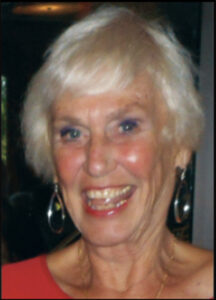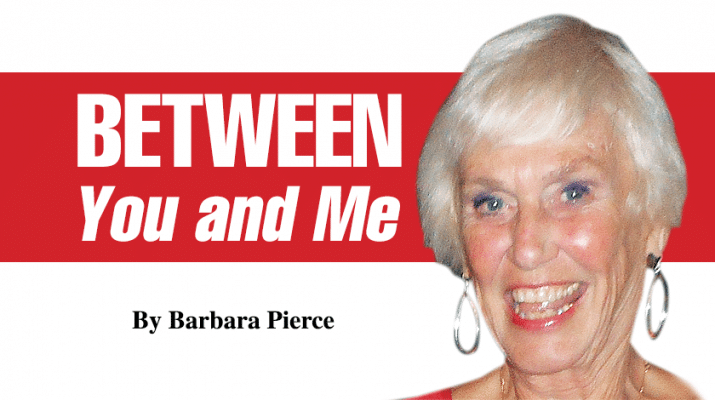The challenges of being a mother of adult children
By Barbara Pierce
 “Casey is moving to Mississippi this weekend,” said my daughter, in a very matter-of-fact way, without any emotion. Her 19-year-old baby was moving 10 hours away and she wasn’t falling apart. This was strange, as his decision was impulsive and such a bad decision for so many reasons.
“Casey is moving to Mississippi this weekend,” said my daughter, in a very matter-of-fact way, without any emotion. Her 19-year-old baby was moving 10 hours away and she wasn’t falling apart. This was strange, as his decision was impulsive and such a bad decision for so many reasons.
He made this decision as one of his friends had moved to a small town in Mississippi and invited him to come, assuring him of a job when he got there. He couldn’t find a job where he lived in Florida; unemployment rates are high for young people just out of school. And he didn’t like that his stepfather had become more emotionally abusive toward his mother.
What was strange was that his mother was so matter of fact about it; she understood his reasons for wanting to leave and she wasn’t hysterically crying like she did when things weren’t going right.
Strangest of all, she wasn’t asking me what she could do to stop him. Not that she often asked me for advice; only in desperate situations did she turn to me to help her figure out answers. And, yes, this was a desperate situation.
She accepted that he would leave. And she recognized that it would be a good learning experience for him. She accepted that she couldn’t stop him. She clearly let him know he can come home anytime; just call and she’ll drive there to pick him up.
She was doing all the right things, all the things experts recommend as your relationship transitions from being the mother of a child to being the mother of a young adult. I was proud of her.
Letting go of our children must be counted among our necessary losses.
“You go from a very loving and intense relationship spending lots of time fully enmeshed in each other’s lives, to slowly being made redundant. Not fired, just demoted. As your kids become more responsible and independent, your role in their lives diminishes. We go from playing the leading role, to supporting lead, bit player,” is how Brandon Janous, widower and single father of three describes it online.
“The truth is, we can’t outrun the pace of our kids growing up. It’s happening and it’s happening faster than most of us would like. But we do have a choice in how we respond to it all,” he added.
“Being the mother of an adult child means transitioning from a role of direct supervision to one of support and guidance, requiring a shift in perspective to embrace independence, set boundaries, and nurture a reciprocal relationship based on mutual respect, listening and acceptance. It involves letting go of control, adapting to a new dynamic, and finding ways to stay connected while honoring the adult child’s journey,” is how author Celia Dodd, mother of two young adults, describes it online.
In his new book “Doing Life with your Adult Children,” author Jim Burns makes it clear that our job as parents changes drastically once our children become adults. He describes how holding on too tightly to control can damage trust and push children away. This struck me because well-meaning advice often comes off as interference. The lesson here is to keep the bond alive by respecting their independence.
As my daughter made the transition as a young adult, my well-meaning suggestions usually fell on deaf ears. I had to learn to back off and bite my tongue, letting her figure things out for herself.
The balance between help and interference was a hard one for me. I had to resist the temptation to jump in with a solution and instead give her the space she needed to sort things out for herself.
“Offer support, not solutions.” Burns continued. “Be a resource and a sounding board, but resist the urge to fix their problems for them.” Move from being a director to a supporter, and consultant and confidant, focus on encouraging your adult child to make their own choices and find their own way.
“Be their biggest cheerleader and supporter. Praise them, compliment them, but don’t criticize them (even if you think the criticism is for their own good.) Use the principle of positive reinforcement with your adult children. Compliment them on all the things you think they are doing right. And you just ignore all the things you don’t like. That’s right. Just ignore it. Don’t bring it up,” says Sage Allen online.
“The changes will come. Embrace the changes while enjoying the ride. Just enjoy the ride!” concluded Janous.
As for Casey, he lived in Mississippi two months and just came home, much to my relief… “I learned a lot,” he said. The promised job didn’t materialize, the girls were all ugly and the friend he went there to live with turned out to be a really bad housemate. He grew up a lot and he seems just fine.
 Barbara Pierce is a retired licensed clinical social worker with many years of experience helping people. If you would like to purchase a copy of her book, “When You Come to the Edge: Aging” or if you have questions for her, contact her at barbarapierce06@yahoo.com.
Barbara Pierce is a retired licensed clinical social worker with many years of experience helping people. If you would like to purchase a copy of her book, “When You Come to the Edge: Aging” or if you have questions for her, contact her at barbarapierce06@yahoo.com.

